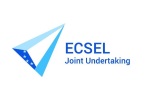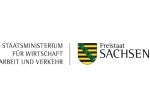Technical Approach
In order to maximize the efficiency of ADMONT and focus on real-world impact throughout the project, we have designed a concise and efficient structure. The whole project is broken down into nine work packages which are further divided in tasks. The target of this structure is to meet the project’s main concepts and objectives, as described in the following.

WP1: Requirements, Specifications and Demonstration of the MtM Pilot line
In WP1 the basic setup of a framework for a distributed pilot line will be developed. In respect thereof supply chain management (SCM) concepts will be adapted to the needs of performance controlling of the individual line members as well as the whole pilot line. As a prerequisite, well defined measures and methods for data aggregation will be defined. Additionally, standardized interfaces between customers and the supply chain structure within the pilot line will be defined and complemented by interfaces between pilot line partners.
WP2: 0.35µ High-Voltage Technology & Sensor Interfaces
In WP2 the technology base for the ADMONT MtM CMOS pilot line will be provided and existing technology platforms will be further developed. The requirements implied by other WP’s will be collected and applied to the individual tasks. The development and the optimization of alternative silicon substrates will support the improvement of X-FAB’s ultra-high voltage (UHV) CMOS platforms. The integration of sensor interfaces into the HV/UHV CMOS process will lead to a diversification of the application space of the existing technologies.
WP3: Design and Modelling for 0.35 µ High-Voltage Products
In WP3 the design basics which are necessary to enable product design will be provided with the newly developed technology, modules and devices. A long term quality assurance plan as well as process design kits (PDKs) will be provided. The PDKs contain all necessary design basics, documentation and advanced modeling capabilities. In addition comprehensive documentation will be provided on the process and the devices, including detailed reliability data, guidelines and tools for reliability aware design.
WP4: Processes and Materials for integrated Sensor-Actuator-Systems
In WP4 a demonstrate fabrication platform at industrial level will be provided.This will be developed for integrated sensor and actuator systems, utilizing the technological capabilities of all clean room facilities of the joint pilot line. The focus will be the establishing of the technology platform for monolithic as well as for heterogeneous integration of sensors and actuators with CMOS for integrated systems. Finally the work package will establish and prove a consistent workflow for the interdependent collaboration between different clean room facilities at the Dresden location for the next generation smart systems.
WP5: Design for diagnostic Sensor and Actuator Products
In WP5 the versatility of the developed technology models and components is demonstrated in medical diagnostics applications showing flexible use and market potential. WP5 has its focus on the development of sensor and actuator micro system platforms for diagnostic purposes and develops smart health solutions. It will cover a comprehensive extent of the healthcare business sector including the fields of cancer research, bioanalytics, medical technology and wireless multiphysical sensors. Thus this WP will demonstrate the capability and validity of the technologies provided by ADMONT in the healthcare domain.
WP6: Smart Production for the distributed MtM Pilot Line
In WP6 the requirements which are headlined by “Real-Time Factory Analysis and Control” and “Smart Intralogistic Automation Systems” will be addressed.
On software side a new approach to collect, store, process and report FAB relevant data, such as Cycle Time, Overall Equipment Efficiency etc. will be developed (for moving bottleneck detection, improvement potential analysis etc.). New hardware automation solutions such as automatic material transport, storage and handling are necessary. All elements will have innovative character for legacy 200mm semiconductor Fab’s and will lead to improved FAB performance and competitiveness.
The virtual pilot lines will be interconnected by new designed IT-Interfaces to ensure fast, reliable and valuable data exchange. To measure the results of the new soft- and hardware automation system, key performance parameters (KPI) and related metrics will be evaluated and deployed.
WP7: System Integration for Key Application Areas
In WP7 the system integration for the key application areas will take place. Several demonstrators will be built, tested and verified. In addition to this, the WP will deliver input to the requirements of the MtM distributed pilot line. The ambition in WP7 is to prove the benefit of the virtual pilot line by enabling new application and new application fields and combines several key enabling technologies into smart system solutions up to finale system qualification and field tests.
WP8: Dissemination and Preparation of Exploitation
WP8 wraps the project by focusing on dissemination, communication, exploitation, standardization and training. Hence WP8 is in charge of the widespread diffusion of ADMONT concepts and results through publications and standardization actions. It will also cope with exploitation plans, business plans and intellectual property rights.
WP9: Project Management
WP9 is responsible for the operational management and technical vitality of the ADMONT project encompassing management components on contractual, financial, legal, technical, administrative and ethical levels. The main objective is the establishment of a sound and flexible project management structure, an efficient management process as well as the provision of an effective risk management strategy, which target commonly the avoidance of deviations of the work plan.





